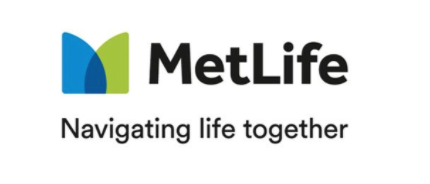FTAdviser's Diversity In Finance Awards 2021

Diversity, equality and inclusion are key words among management circles these days. But it is not just because companies are waking up to the fact that improving their businesses in these three areas is the right thing to do. It is also because, where financial services are concerned, a failure to improve DE&I can lead to regulatory action.
The Financial Conduct Authority has made no secret – as FTAdviser predicted more than a year ago – that it will hold companies and their executives accountable for a lack of DE&I.
This applies as much to the working culture at businesses as it does to the way in which companies treat their staff and how well they support and reflect the communities in which they operate.
FTAdviser’s DIFAs aim to showcase best practice examples from across UK financial services, highlighting and commending those companies that have made significant strides forward to improving DE&I over the past 12 months.
With a record number of entries across all categories since the awards were founded, FTAdviser is very pleased to announce the winners and those highly commended businesses in the prestigious FTAdviser 2021 DIFAs.
FTAdviser would also like to thank its diversity partner, MetLife, for helping to make the 2021 awards possible, and our supporting partner, the Chartered Insurance Institute.
Simoney Kyriakou is senior editor of FTAdviser


Why diversity and inclusion makes good business sense
Diversity, equality and inclusion should not be a tick-box exercise designed to meet the bare regulatory minimums.
Instead, DE&I should be integral to a company's entire operation, from top brass to grass roots, and stretch beyond the workplace towards clients, customers and the wider community.
This was the view of the expert panel, speaking on the topic of why DE&I makes good business sense.
Keynote speaker Bell Ribeiro-Addy, MP for Streatham, commented: "It is not only for the benefit of society that the financial industry should seek to diversify; it makes logical business sense to do so.
"Diversity within teams brings a broader approach for allowing for better business practices."
Her views were echoed by fellow panellist Junior Imode, a winner at last year's Diversity in Finance Awards, and principal cloud engineer at the Financial Conduct Authority.
He said: "As we start to expand UK financial services into new territory, we need to be more diverse and inclusive. This actually fosters better innovation.
"And the more we innovate in this space, the more we improve the UK's financial services industry."
Also on the panel was Amy Tomlinson, head of HR at MetLife, who agreed it was important to put in great DE&I policies and practices, but warned against making this a tick-box exercise.
Ultimately, it's important to get the basics right
She said: "There's all these awareness days, for example, which come up and we mark them, which is brilliant but it's not just about marking these and ticking a box.
"D&I needs to be truly embedded in the organisation, coming right down from the top and being absolutely part of the fabric of financial services companies."
But this is not just something that companies with deep pockets need to pay attention to: this is something that should also be part and parcel of the smallest firms.
Ian Simons, marketing director at the Chartered Insurance Institute, was also on the panel.
He explained even the smallest advice companies needed to understand how they could serve an ever-more diverse client base.
He told the panel: "It's really key that we don't assume all firms are the same or all problems are the same.
"For example, if you have one office in one part of the country that's a very different proposition from having something that's national or multi-national and having a whole department that can be dedicated to DE&I.
"At the CII, we're passionate about trying to listen to what changes some of our smaller firms have made and what aspects they can lead on.
"Ultimately, it's important to get the basics right, and while it might take longer for smaller firms to get their data on DE&I than a larger firm, they should all be operating with the same set of principles."
All the panel agreed that every business should be making some steps forward, whether these are small or large, to meet and surpass their regulatory obligations on DE&I.
They also hailed the steps taken by this year's winners at the Diversity in Finance Awards 2021; some businesses have made exceptionally large strides forward to improve DE&I.
To watch the panel session, and to view the deserving winners of the FTAdviser DIFA 2021, click on the video above.
Trailblazing Company of the Year (Large Firm)
The Financial Services Compensation Scheme's depth and breadth of diversity, inclusion and belonging initiatives inspired the judges so much that they have awarded the company Trailblazing Company of the Year (Large Firm).
Supporting families and carers in work has been an important aspect to the FSCS. It is a member of Working Families (the UK’s work-life balance charity). Family support is also demonstrated through its enhanced paternity leave of 20 weeks’ full pay. The organisation also extended its dependant’s leave policy to 20 days’ paid leave to address the challenges of juggling work and home-schooling during the pandemic.
The FSCS has also been working closely with Business in the Community (who are committed to championing responsible business) and has served on the leadership teams for the organisation's Age at Work and Race at Work campaigns. The FSCS is also a founding or early signatory on several Race and Gender Equality Charters.
The FSCS says it proudly supports the LGBT community and is a Stonewall Diversity Champion, with 7.5 per cent of its leadership population identifying as LGBT, including representation on its executive team.
As a Disability Positive Employer and a Mindful Employer, the FSCS has 11 mental health first aiders and annually takes part in Time to Talk Day.
In a very original strand of its training, the FSCS developed its education of staff by rolling out unconscious bias training across the organisation to support employees, specifically those involved in recruitment.
It has extended its work with race diversity and inclusion by taking an innovative approach to supporting ethnically diverse employees: it ran a series of discussions across the organisation to help people understand the lived experiences of Black and minority ethnic colleagues, and to open the dialogue. This led to a new survey to understand more about the experiences of ethnically diverse colleagues and how its employees understand the current discussion around race.
The FSCS has shown its commitment to innovation by introducing sponsorship to support ethnically diverse colleagues and increasing their access to opportunities. Its commitment to race inclusion has also led the FSCS to run education sessions around race, making these essential for those in leadership positions.
It launched its first ever Black Talent Sponsorship Programme, designed to focus on increasing access to opportunities and address under-representation at top levels of the organisation. Each employee is partnered with a senior sponsor from their executive team for monthly sessions; and in addition to training, quarterly networking events and the opportunity to become a mentor for the Aleto Foundation, which supports the development of a new generation of young leaders from tough backgrounds.
This year the FSCS is continuing its trailblazing work by focusing on allyship and activism, to create an environment where people feel they belong. Solidarity hours are training sessions to cover topics including anti-racism, white privilege and micro-aggressions (not just about race).
All in all, the judges felt the FSCS displayed a tremendous effort to establish new paths in championing diversity and inclusion, enabling staff from all backgrounds and life situations to have a greater sense of belonging.

Trailblazing Company of the Year (Small Firm)
Entrees for the category of Trailblazing Company (Small Firm) showed that the industry is rich with ground breaking companies, stoking up new ideas and initiatives to develop better diversity and inclusion. In the end it was The Return Hub who clinched the award for Trailblazing Company of the Year (Small Firm).
Realising the under-utilised potential and untapped economic gains that could be addressed by supporting women back into the workplace after career breaks, The Return Hub has been filling gaps in the recruitment market by placing (predominantly) mid-senior level professional women who want to relaunch or transfer their careers with corporate employers in the financial services sector. The Return Hub also campaigns to promote the benefits to employers of hiring from this hidden talent pool of returners.
Finally, it has been addressing the gender pay gap and the under representation of women in financial services by advising on and implementing practical strategies that companies can use to target, assess, hire and support diverse returning talent.
The team at The Return Hub have given large amounts of time and attention to inspiring, mentoring and re-building the confidence and self-belief of the company’s candidates.
They work with 59 different companies and have organised in excess of 2,000 interviews, placed almost 100 (mainly full-time) women into roles with average salaries ranging between £100,000 - £200,000.
In addition, The Return Hub also trained and educated hiring mangers on how to attract/retain women; developed a hiring managers toolkit to help them get what they need/want from the interview process; and runs pro-bono events for the Women’s Alumni, Academic Institutions, professional bodies and other women’s network groups.
The Return Hub also created and launched the Career Academy, a high-quality digital resource containing career development tools available for free to anyone who signs up through the its website.
The Return Hub did excellent work campaigning nationally on behalf of women, contributing to the Women and Work All-Party Parliamentary Group. Additionally, it also contributed to work carried out by the Equalities Office, advising on what the government can do to increase the participation of women in the workforce.
Through The Return Hub’s campaigning work, practical support, and mentoring of professional women, the organisation has displayed its ability to pave the way in D&I and to create a more sustainable and inclusive workforce.

Championing Social Mobility
When it came to judging the industry’s championing of social mobility, judges were drawn to an organisation whose passion and commitment to social mobility has extended into the community.
Ruth Whitehead Associates (RWA) has made a huge difference to the community of Stoke Newington, creating opportunities for children who would otherwise have limited participation in and experience of activities crucial to their development.
RWA champion equal treatment and inclusivity. Motivated by her own experience of feeling ignored, founder Ruth Whitehead was determined colleagues and clients would always represent a wide range of ages, socio-economic backgrounds, genders and sexualities, all of whom she felt were not just under-represented in financial services, but excluded.
RWA says: "The business is determined to improve our clients’ economic mobility. Limitations in personal finance can stifle talent, life chances, and progression towards security and freedom, impacting on wellbeing. RWA empowers people to take care of theirs and their families’ financial futures."
RWA has been focusing on improving people’s life chances in the local community.
Four years ago, Whitehead moved the office to church halls in an economically-deprived part of Stoke Newington. St Matthias Church is
the parish church for the Antigua Barbudan community in London.
The company realised there was a need for additional support for this under-represented local community that was not being met. Staff have been sharing expertise with congregants, and also creating learning and cultural opportunities for every child at the local primary schools.
The office space is opened from 4pm during term time to host low-priced after-school activities such as karate, ballet, art, and singing for all local
children.
Whitehead has founded the charity DissentersArtsN16, which, among other things, offers bursaries to children from low-income and refugee families. Many have never had the opportunity to try extra-curricular activities in which they can lose themselves, discover talent or a passion, says Whitehead.
RWA is now officially classed as a Friend by their neighbour, St Matthias School, and works in partnership to help every pupil achieve their full potential.
RWA has been sourcing hot meals and ingredients for families in need and isolation. They also donated thousands of pounds for food vouchers
for every child during a half-term break.
Additionally, they donated money from the DissentersArtsN16 charity for a year’s worth of sessions with The Garden Classroom to encourage active lifestyles, promote self-discovery, inspire growth and stimulate respect for nature.
RWA has also funded a virtual concert by vocalist Clara Sanabras, raising money for DissentersArtsN16; secured funds for reading books representing pupils’ diverse backgrounds; donated money to Hackney’s Akwaaba social centre for migrants; donated funds for creative toolkits for all 232 pupils during the first lockdown from the DissentersArtsN16 charity; and funded 30 much-needed laptops for IT classes.
It is not difficult to appreciate the diversity of experience and avenues that RWA developed in championing social mobility, and the judges
said RWA set an amazing example in this area.

Championing Disability Inclusion
This year judges were particularly impressed by the industry’s determination to integrate disability awareness and care across its organisations. While the mix of entrees was impressive, there was one entrant who really stood out in its efforts.
Based on its comprehensive and holistic approach, the Championing Disability Inclusion award has gone to Santander for its work with the Alzheimer’s Society to make the banking process easier for people suffering memory impairment.
Against the jaw-dropping statistic of an estimated 1m people who will be living with dementia in the UK by 2025, Santander wanted to ensure that it maximised responsiveness to customers and their families effected by dementia.
Together with the Alzheimer’s Society, Santander has been creating social change by developing solutions to help people affected by dementia continue banking independently and safely. The bank has been putting programmes in place and adapting services, plus raising £1.5m to fund vital dementia support services and research.
The company set out three primary objectives:
- Communities: Maximise Santander’s positive impact in communities.
- Customers: Make Santander the bank that best supports people affected by dementia.
- People: Improve Santander employees’ wellbeing and understanding of dementia.
Under these three goals Santander went on to create initiatives and programmes, drawing from the wisdom of a newly created Santander Dementia Steering Group (SDSG) where people affected by dementia lead on every aspect of the partnership. The SDSG is comprised of people affected by dementia, Santander employees, customers and the Alzheimer’s Society.
Together, the SDSG has influenced and improved 14 Santander products/services in the last year.
These include co-creating Santander’s dementia guide, a carer’s card account and third-party access bank accounts to improve financial inclusion and provide safe, legal ways for a trusted person to help manage people affected by dementia's money without requiring a power of attorney. An internal ‘customer support note’ flags vulnerabilities on customers’ accounts so cognitive vulnerability can be disclosed. A dementia-friendly webpage and ATM journey have been introduced, made less confusing by incorporating accessible language, colours and sequencing.
Staff awareness has been another focus, with training given through Alzheimer's Society's Dementia Friends and Dementia Ambassadors programme. Trained staff are able to support and drive forward dementia-friendly initiatives. As a result, 96 per cent of employees feel better equipped to support people affected by dementia, ensuring the right support is available when needed.
Recognising that without their usual routines or social interaction 80 per cent of people's dementia symptoms deteriorated during lockdown, Santander branch staff reached out to vulnerable customers, supporting them to manage their finances during lockdown and combating loneliness.
More than 300 employees volunteered to be Alzheimer's Society Companion Callers, providing more than 7,500 friendly and vital chats to people affected by dementia.
The judges say well done to Santander for working with people affected by dementia and the Alzheimer's Society to raise awareness of dementia among staff, for reaching out to those with dementia to provide vital compassion and support, and initiating and integrating dementia-friendly programmes and processes into the banking service.

Diversity and Inclusion Initiative of the Year
Judges were especially impressed by the research and campaign initiative by one company determined to narrow the pensions gap and make pensions more inclusive for everyone. Appreciating its drive to create a fairer pension system that benefits everyone in the UK, judges named Now Pensions as winner of the Diversity and Inclusion Initiative of the Year award.
Following legislation around the gender pay gap, Now Pensions started to consider the long-lasting repercussions unequal pay may have on women’s ability to save for the future, and consequently how a gender pension gap may also exist.
It commissioned the Pensions Policy Institute to conduct in-depth research into the difference in pensions savings between men and women when they retire. In 2020 Now Pensions extended its research to look at other “under-pensioned” groups to better understand how to make pension saving fairer for all and to propose new policies to close some of these savings gaps.
Its key objective was to increase awareness and alert people of the growing pension savings gaps in the UK and give practical advice on how they could best close these gaps if they were members of these under-pensioned groups.
The longer-term strategy was to create a fairer pension system that benefits everyone. Now Pensions has been working towards this by campaigning and lobbying the government.
Starting on International Women’s Day in March 2020, the company developed a hyper-targeted campaign, culminating in the launch of the under-pensioned report in December.
It built and launched a brand new consumer-friendly site, Fair Pensions for All, which offers research, perspectives and policy proposals on tackling the UK pensions gap. Now Pensions also developed a seven-part campaign exploring the challenges each individual group faced.
Using research from the PPI, Now Pensions unpacked inequalities divorced women, single mothers, BAME groups, the disabled, the self-employed, multiple job holders and carers face, then developed a media relations campaign targeted at national, consumer and broadcast press.
By engaging with these groups, Now Pensions was able to reach and articulate the key barriers that inhibit pension savings in a way that was accessible to a broad consumer audience. In the report it worked with pensions experts, thought leaders and charities to reach the affected members of these under-pensioned groups.
The company presented two policies to HMRC and the minister for pensions. If introduced, these policies would generate an additional £1.2bn in annual pension contributions and see an extra 2.5m people access a workplace pension.
For employees, Now Pensions has created several internal working groups including women, BAME, LGBTQ+ and working parents to support employees with their own pension saving journey.
The judges say well done to Now Pensions for its work in the vital and often under-recognised area of pensions reform in building better diversity and inclusion.

Introducing the judges

This year, the FTAdviser Diversity In Finance Awards 2021 brought judges together from a breadth of industries.
All the judges have many years' experience in diversity, equality and inclusion initiatives and training, as well as bringing personal perspectives to bear on the judging process.
Candidates were judged according to this methodology:
- Relevance to UK financial services: Must operate in, and serve, UK financial services.
- Demonstrable success: Prove through quantitative statistics as well as their qualitative statements their commitment and achievements in the field of DE&I.
- Outward-facing: Companies and individuals whose work did not just affect their own staff but also their clients and their communities.
- Breadth of issues: Companies and individuals looking to improve across a range of DE&I initiatives, as well as finding different and multiple ways to tackle a particular issue.
- Ongoing commitment: Companies and individuals working year after year to build on past successes, rather than remaining static or heralding past achievements.
- Operations carried out during 2020: The new achievements must relate to the past 12 calendar months.
- Provider of the Year: This is judged based on the number of successful submissions reaching the shortlists, with multiple highly commended and winning entries.
FTAdviser is pleased to have past winner MetLife as our diversity partner and the CII as our supporting partner for the Diversity In Finance Awards 2021.
Diversity Partner Focus
MetLife is the diversity partner for FTAdviser's Diversity In Finance Awards 2021.
As the winners last year of the prestigious provider of the year, chosen by the judges based on excellence across all the criteria in which the company submitted entries, MetLife showcased great ideas and best-practice examples on how to embed diversity and inclusion.
Last year, Helen Walpole, HR business partner for MetLife, won the award for Diversity Champion (Individual) and helped clinch Provider of the Year Award for her employer.
MetLife has continued to work to embed diversity and inclusion into the business with programmes ranging from better rights for women going through fertility treatment, to creating a diversity and inclusion forum in Brighton – an initiative of Walpole.
MetLife has pledged to support and encourage gender balance across the financial services industry
Moreover, MetLife has created a number of committees specifically aimed at promoting diversity and inclusion among the workforce and engaging employees.
To improve the level of training and qualification of members of the diversity and inclusion committee, MetLife also became members of Inclusive Employers, a leading organisation that promotes inclusive workplaces.
More widely, MetLife instigated the Brighton Diversity and Inclusion Forum to raise awareness in the local business community, inviting local employers to a launch event hosted by members of MetLife’s diversity and inclusion committee. This is the only forum of its kind in Brighton and exists as a platform for sharing experiences and best practice.
MetLife says it understands neurodiversity and the principle that all brains are different, and therefore the importance of considering everyone because everyone has different needs. On this premise, MetLife engaged Genius Within, a local community interest company that specialises in neurodiversity inclusion services, including coaching, training and assessments.
Largely unrecognised as a group thus far has been women undergoing fertility treatment. MetLife’s work on diversity and inclusion has resulted in the recognition of this group with a new policy that provides five days of paid leave during each cycle of fertility treatment. This has also successfully increased awareness of this growing trend.
Other strategies have been successful in raising awareness of diversity and inclusion. This has largely happened through initiatives such as:
- Women in Finance Charter: MetLife has pledged to support and encourage gender balance across the financial services industry by signing up to the charter.
- Enhancements to recruitment advertising: All advertising now contains a clear and detailed diversity and inclusion statement as well as displaying the logos of Inclusive Employers, and the Women in Finance Charter. MetLife also publishes all its family-friendly policies on its website.
- Brighton Pride: MetLife continues to support the festival.
- The Workforce of the Future sessions: These sessions acknowledged the changing face of the workforce – now formed from four different generations, all with different needs, attitudes and working methods – and the need for a flexible approach to these different groups.


